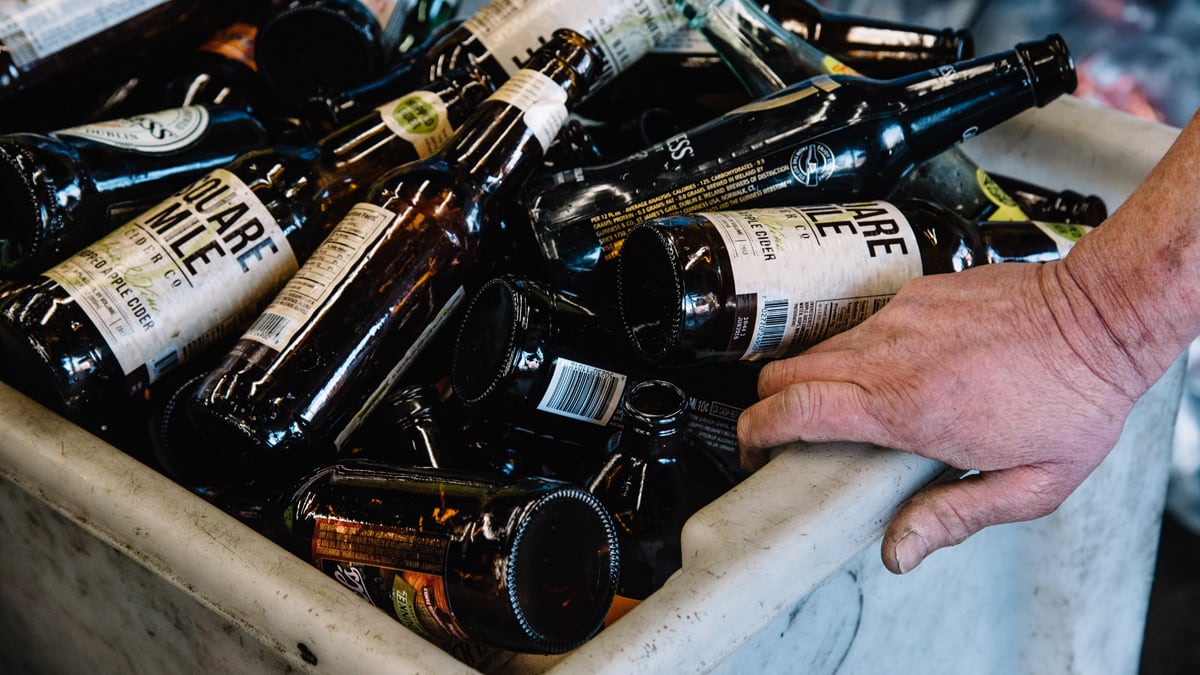I recently signed up for Bottle Drop. Now that they can track every bottle of IPA I swig, can we find out who they're selling that data to? Will all of my Google searches soon include ads for the Addiction Network conveniently located near the top? —Just Another Ten-per-center
For those who don't know: BottleDrop (not "Bottle Drop"—God forbid any 21st-century enterprise should have a space in its name) is a system for refunding Oregon's deposit on beverage containers that's been coming online over the past year. It has a half-dozen freestanding locations in the Portland area, plus a number of "Express" locations in various supermarket parking lots.
BottleDrop's breakthrough is that you can now drop off your recyclables and walk away—no more hanging around the dumpsters waiting for Jayden to finish his smoke break. The deposit money gets credited to your account within a week or so. (If you're in a hurry, you can still feed your bottles into the big sticky machine and get cash immediately.)
It's so convenient I'm slightly worried that people who used to curb their deposit bottles will start redeeming them again, depriving neighborhood gleaners of a rare source of cash. At least the app (you thought there wouldn't be an app?) prominently features an option to donate your bottle money to charity.
But back to the original question: Program spokesman Joel Schoening assures me that BottleDrop centers do not aggregate individual users' consumption data, "and if we did, we wouldn't sell it."
Honestly, Ten, if you're that worried about people finding out what a lush you are, you should be glad to have BottleDrop—at least now you don't have that telltale recycling bin full of booze bottles sitting in front of your house every week.
Personally, I can hardly wait. I can't tell you how many times I've guiltily hauled my overflowing bin to the curb, surveyed the carnage of empty gin bottles and PBR cans, and thought to myself: "Man, this looks bad. People are going to think I can't afford to drink at a bar."

